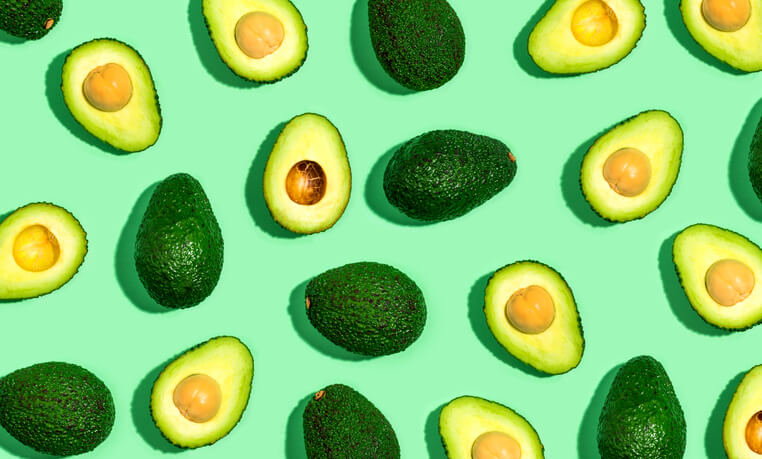Why You Should Always Wash Your Avocados
7 years ago | Nutrition
By Joy Stephenson-Laws, JD, Founder
It seems as though we always stress the importance of eating whole, unprocessed nutrient-dense foods such as fruits and vegetables. This is because fruits and vegetables contain many of the nutrients our bodies need to keep us healthy. Remember we need six basic nutrients to live: water, protein, carbohydrates, fats, vitamins and minerals. And many nutrients, especially vitamins and minerals, are present in fresh produce.
Nutrients present in fruits and vegetables include vitamins A, C, D and E, and minerals, such as manganese, phosphorus, sodium, potassium, magnesium and zinc. These nutrients not only help our bodies function properly and efficiently but they also help delay aging and help prevent all types of disease, including cancer, diabetes, heart disease, arthritis, depression and more.
And the truth is many people are just not getting the right amounts of these key nutrients. In fact, it is estimated that more than two billion people globally have at least one nutrient deficiency. This is why we stress the importance of eating plenty of fresh, plant-based foods.
But equally important as eating the right foods is eating these healthy foods in a safe manner. I think most of us are cautious about consuming undercooked meat and raw eggs. However, we sometimes forget that all types of produce, even produce that comes with a peel or hard exterior, must be thoroughly washed before preparation or consumption. And this rule applies to avocados.
Many Americans are avocado lovers. The avocado is sometimes referred to as a superfood. There’s nothing better than cutting into a ripe avocado and scooping out all of that rich, creamy green goodness which is a great source of healthy fat, vitamin C, folate, calcium, magnesium, phosphorus, potassium, among other critical nutrients.
According to Statista, in 2014 the average consumption of avocado in the U.S. amounted to 23 million pounds per week and is projected to grow up to 50 million pounds per week in 2019.
But the next time you cut into an avocado, you should also remember to wash it. Don’t be fooled by the hard exterior. It is just as important to wash avocados as it is to wash an apple, pear or fresh strawberries or blueberries.
The Food and Drug Administration (FDA) recently warned avocado lovers about the importance of washing the peel or exterior even though it is not a part of the edible portion of the fruit.
According to one report, “It's a way to prevent bacteria and dirt from hitching a ride on your knife from the dark green avocado skin to the light green fleshy part that you eat. To reduce the risk even more, scrub the peel with a produce brush and dry it with a clean or paper towel.”
The FDA found Listeria on the peels of about one in every five avocados in a study where they tested 361 domestic and imported avocado peels. Simply taking the time to wash the avocado first will greatly reduce the chance of you exposing yourself or your family to harmful bacteria.
It is true that the risk of encountering Listeria with unwashed avocados is relatively low. But this is still a risk which you should be proactive about.
“Even though the risk is relatively small, you can reduce it to virtually nonexistent," said a professor who was referenced in the report.
"There are many more dangerous things you can do than not wash an avocado, but having said that, the rate at which the FDA found listeria on avocados was a fair amount."
We should also apply this washing rule to other fruits that contain peels or hard exteriors. In 2011, there was a multistate (28 states total) outbreak of Listeria linked to whole cantaloupes. A total of 33 people died as a result of this outbreak and there were 143 hospitalizations.
Reportedly, fruits and vegetables poison more Americans than beef and chicken.
So wash your avocados, cantaloupes, lemons, limes, oranges, grapefruit, tangerines and even bananas to be safe. And of course, thoroughly wash your grapes, berries, greens that are not prewashed and other fruits and vegetables that have no peel or casing.
Finally, it is also important to wash your hands before you handle any food and don’t purchase produce that has been bruised. You might want to revisit this article about dish towel safety and strategies to keep your kitchen a safe and clean place where you can prepare healthy, nutrient-dense meals that will help you live a happy and healthy life.
Enjoy your healthy life!
The pH professional health care team includes recognized experts from a variety of health care and related disciplines, including physicians, attorneys, nutritionists, nurses and certified fitness instructors. This team also includes the members of the pH Medical Advisory Board, which constantly monitors all pH programs, products and services. To learn more about the pH Medical Advisory Board, click here.







